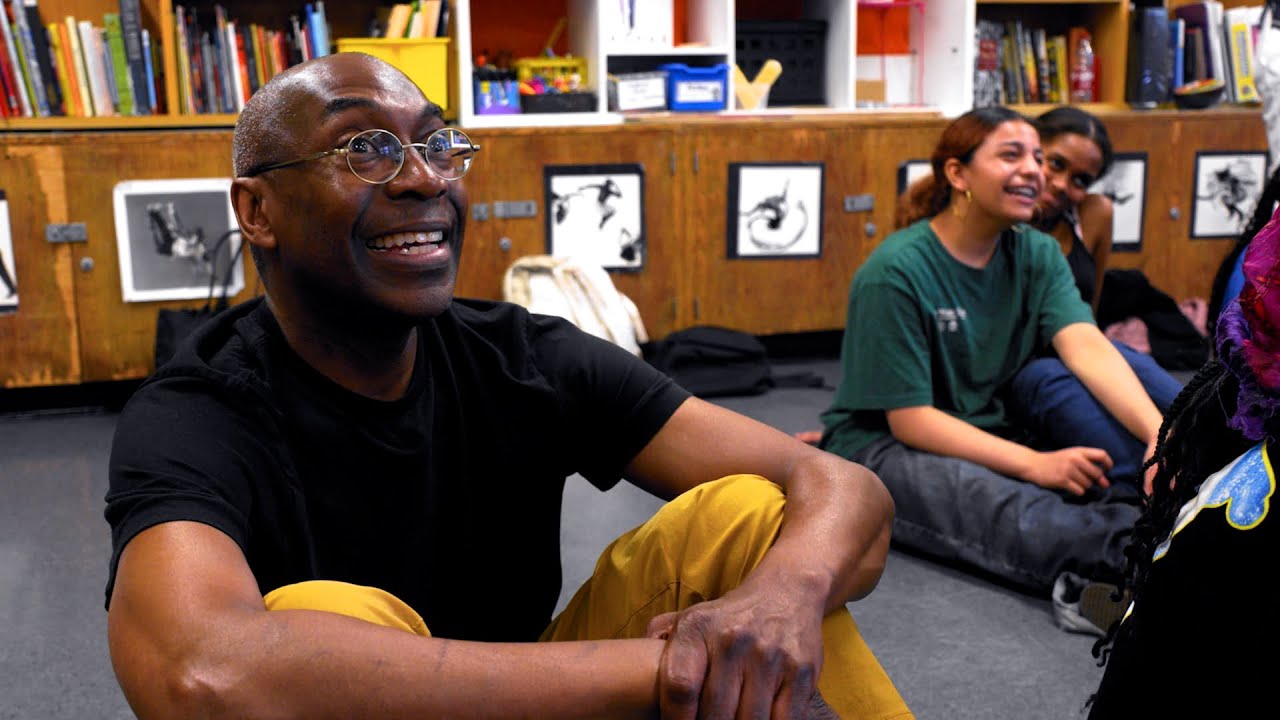
Addressing School Avoidance | Edutopia
[ad_1]
“I don’t want to go to highschool!” are phrases that induce worry, stress, and even frustration at events for the adults who care for teenagers. Naturally, we seek for an underlying set off of school avoidance, which at events is properly acknowledged and at totally different events seems to entail concerning and sudden shifts in conduct and emotions and never utilizing a trigger.
Absenteeism and college avoidance are factors which have elevated remarkably recently, which in flip profoundly affect lecturers. School avoidance is irritating for parents, caregivers, and educators and is normally a cycle that seems to shortly change into atypical for some school college students. Avoiding college leads to missing work and detachment from mates, which leads to nervousness about returning to highschool, doubtlessly leading to additional absenteeism and college avoidance. An increase in mom and father’ working remotely from dwelling, rising nervousness and psychological properly being concerns, and altering attendance insurance coverage insurance policies post-Covid all contribute to this concern.
Resolve a Plan for Addressing School Avoidance
Dad and mother are confronted with balancing expectations and supporting their teen’s psychological properly being, and it is exhausting to know when and learn to best help them when confronted with an upset teen who doesn’t want to go to highschool. Educators merely can’t educate school college students who aren’t bodily or emotionally present inside the classroom. Addressing college avoidance requires an entire intervention effort, with collaboration between mom and father, college administration, counselors, and educators.
Supporting school college students who wrestle with nervousness begins with regulating ourselves as adults and approaching the scholar with a relaxed demeanor. Collaborating with mom and father and caregivers earlier to the scholar’s arrival in class to debate the plan, letting the scholar know when help will probably be accessible and learn to entry that help, and talking this plan with classroom lecturers and administrators are all important steps that could be taken to produce a continuing and supportive technique.
Acknowledge and Deal with Feelings of Discomfort
Lynn Lyons, a worldwide speaker and psychotherapist based in Concord, New Hampshire, who helps youngsters and households deal with nervousness points, states that she “take advantage of[s] a technique that focuses not on ‘getting rid’ of concepts, feelings, or sensations, nevertheless understanding them, at events anticipating them, and learning learn to deal with them.” Impressed by this system, I began piloting a technique that I identify “Comply with the And,” to help school college students with nervousness or college avoidance behaviors.
It appeared logical that as an alternative of encouraging school college students to stay away from feelings of discomfort by eradicating all boundaries, we would as an alternative educate them learn to decide, anticipate, and deal with uncomfortable feelings. The outcomes had been beautiful, given a technique that was truly solely a shift inside the language that we use with school college students. Utilizing this system, we seen that school college students who struggled with college avoidance began to return to highschool additional willingly, bettering attendance and their normal instructional effectivity as a consequence of an increase in instructional time. Moreover they began transferring this system to totally different anxiety-provoking settings.
Merely put, this system encourages school college students to label emotions and what they’re attempting to achieve, modeling that it’s OK to actually really feel uncomfortable when others do not share these emotions. This resilience-building approach mainly encourages school college students to state what they’re feeling, adopted up with the phrase “and” to state what they’re attempting to achieve, to shift our pondering into accepting nervousness and transferring forward.
As an illustration, if a youthful scholar doesn’t want to come to highschool and is feeling frightened or sad about being away from their mom and father, we shift away from “It’ll be good, you’ll see your mom and father later. Let’s get you to class so we don’t miss story time!” to “You are feeling anxious and sad about missing your mom and father, and also you could be in class. It’s OK to have these feelings and be in class. Let’s go to the classroom collectively and see what the class is learning for story time.”
For older school college students, encouraging them to “observe the and” additional independently could possibly be a helpful software program in rising self-awareness and resiliency. As an illustration, asking a scholar what they’re feeling after which making an commentary about feeling that method and transferring forward with a major step could possibly be a way of modeling this system.
School counselors and staff can model and encourage school college students to adjust to these steps to “Comply with the And” when school college students are present in class and even after they aren’t (by way of phone conversations or Zoom calls):
- Set up the emotion (“I’m feeling frightened”).
- Set up the target to achieve (“I’ve to present my problem in school”).
- Add the phrase and (“You are feeling frightened and you could be presenting your problem”).
- Assist the scholar in taking one small step inside the environment that they are avoiding, and take into consideration pairing that environment with a constructive experience—as an example, inviting a trusted grownup or pal to be inside the room for his or her presentation.
- Acknowledge and have time that they confronted the situation that made them uncomfortable, and remind them that feelings are non everlasting and that feelings aren’t on a regular basis info. Maintain this step simple! Acknowledgment could possibly be a phrase, a thumbs-up, or a constructive comment about their braveness and exhausting work.
Managing uncomfortable emotions begins with self-awareness. We should always acknowledge and change into acutely aware of emotions sooner than we are going to deal with them efficiently. Correctly-intentioned adults usually try to supply quick emotional administration fixes to help distract school college students from uncomfortable emotions, when our efforts may be greater focused on encouraging self-awareness.
As soon as we model that it is OK to actually really feel uncomfortable and switch forward, we help resiliency talents that will help school college students deal with these feelings in the end. Furthermore, by using distraction as a singular approach, we are actually modeling avoidance, which can unintentionally perpetuate avoidance behaviors.
Assist a Growth Mindset
This method enhances our work with school college students spherical using a improvement mindset. We educate school college students that our “improvement zone” is achieved as soon as we take healthful risks, drawback ourselves, and change into cosy with feeling uncomfortable. The “Comply with the And” approach helps school college students to shift their pondering from avoidance to self-regulation, and in the long run that leads to an increase of their confidence and resilience.
The “Comply with the And” approach moreover helps school college students research and embrace the reality that emotions are non everlasting. Anxiousness usually feels as if it is eternal, and it’s robust for faculty youngsters to see that they will ever not actually really feel anxious. Providing frequent emotional check-ins and asking how school college students are feeling, or asking them to name a few emotions they’re feeling on the equivalent time, is a helpful method to strengthen the idea that emotions are ever-changing states and by no means eternal.
There’s a sticker on the door to my office that claims, “Feelings are solely company, permit them to come back and permit them to go.” Embracing this mindset, along with coaching the “and,” will assist school college students switch by way of uncomfortable emotions considerably than allowing these moments to take away valuable experiences.
[ad_2]
Provide hyperlink


